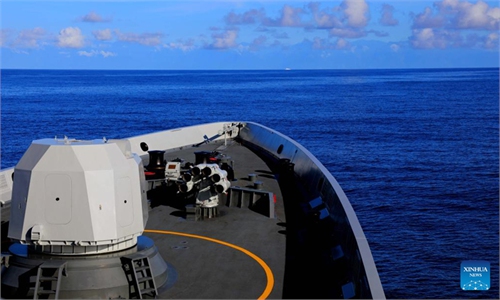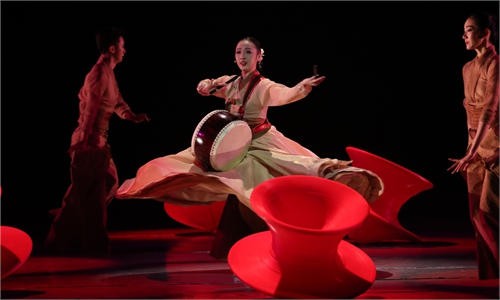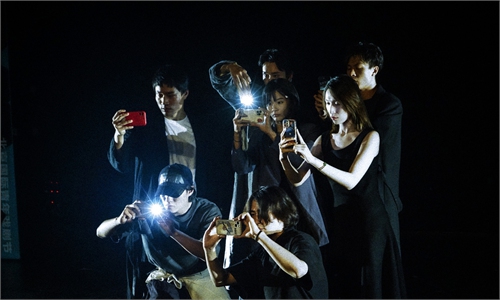ARTS / THEATER
New Chinese musical takes inspiration from Beijing's high-tech Yizhuang Development Area
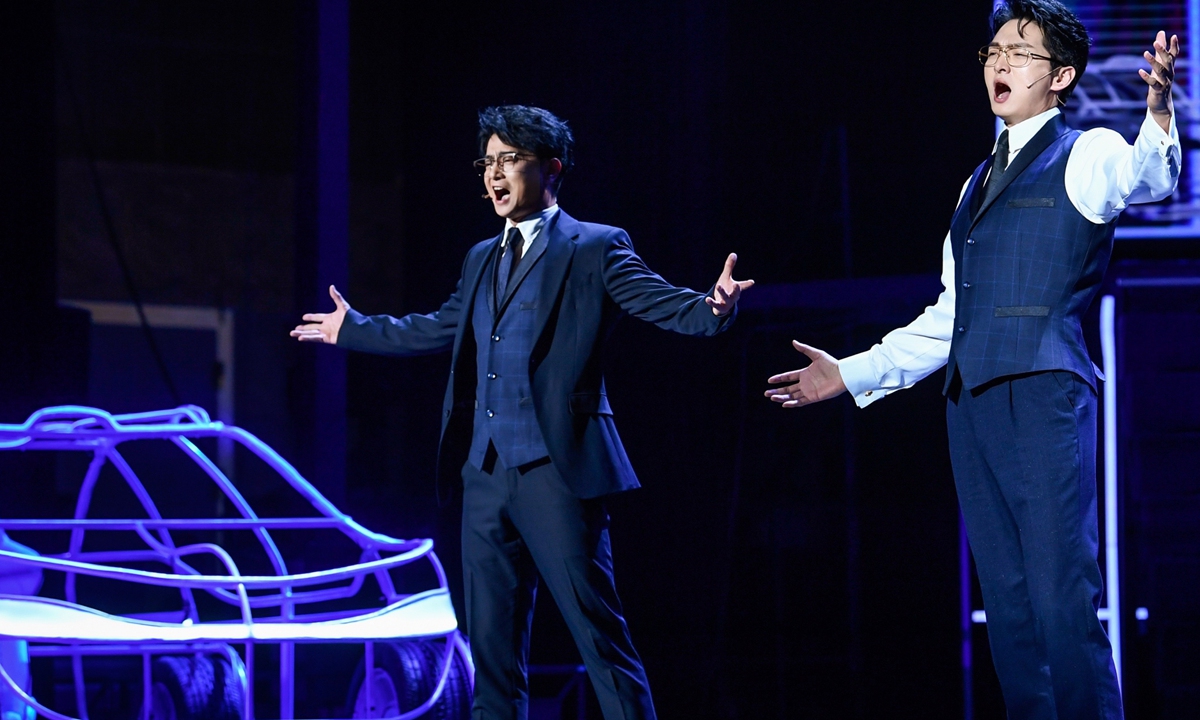
Promotion material for A Dream is True Photo: Courtesy of Beijing Performance & Arts Group
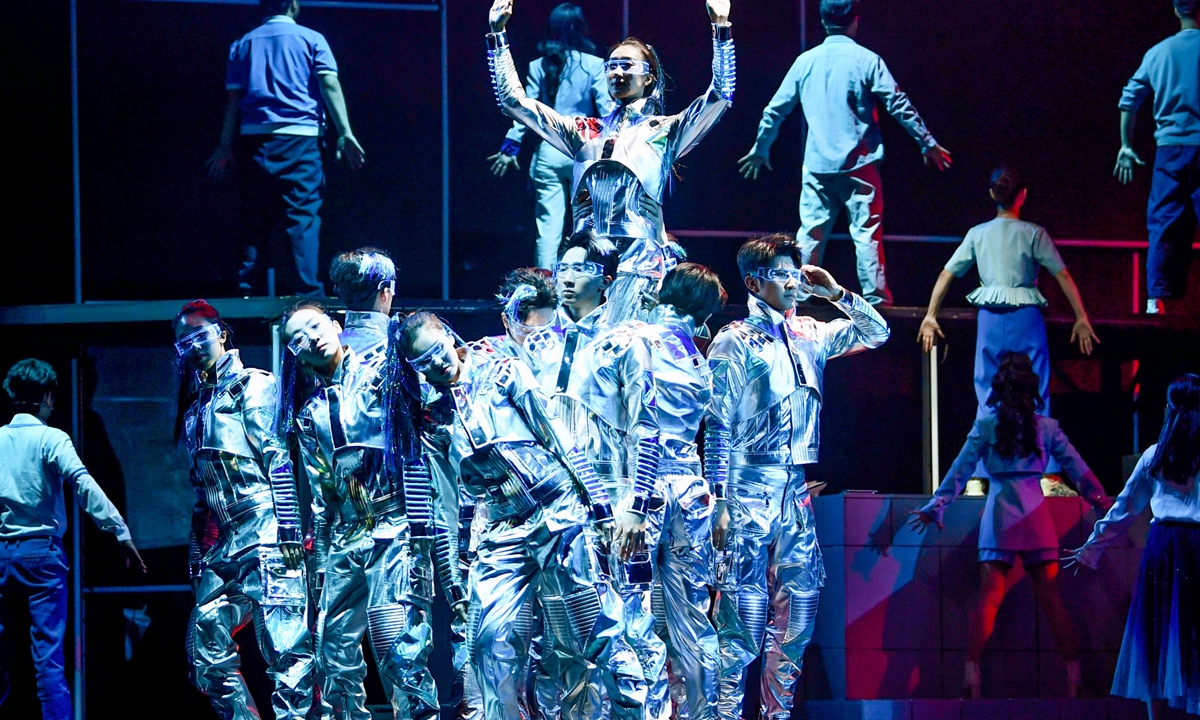
Promotion material for A Dream is True Photo: Courtesy of Beijing Performance & Arts Group
Robots, autonomous vehicles, microchips… these high-tech inventions are not something people usually associate with cultural productions. Yet, they will be front and center in the upcoming Chinese musical Yimeng Yizhen, or A Dream is True, set to debut at Beijing's Tianqiao Performing Arts Center on Thursday night.The original Chinese musical produced by the Beijing Performance & Arts Group and the Federation of Literary and Art Circles at the Beijing Economic-Technological Development Area (BDA) tells the story of two college graduates who establish an AI car start-up and the series of setbacks and challenges they encounter, like the chip crisis, before finally fulfilling their dreams.
Based on the true stories that took place during the development of the BDA, the musical "aims to pay tribute to our country's scientific and technological workers, whose hard work and efforts have helped our country attain great achievements over the past few decades,'' Dong Ning, musical's producer, told the Global Times on Monday.
High-tech pioneers
A state-level economic and technological development zone in Beijing, the BDA, also called the Yizhuang Development Area, has grown into the world's first high-level automated driving demonstration area and the country's first policy pilot zone for intelligent connected vehicles. It is home to a number of multinational giants like JD.com.
"It is an inspirational story of breakthroughs in key technologies and self-developed innovation," Dong added, explaining that the main story line was inspired by China's smart technology development and chip R&D.
In the eyes of the script writer Xu Rui, the musical, about a group of entrepreneurs realizing their dreams in Yizhuang, "will take audiences into a city of the future through various high-tech means and creative stage design."
The main stage is colored in white and blue, creating a futuristic atmosphere that goes well with the story, dialogue, lighting and multimedia displays.
"New technological means like 3D mapping projection and virtual characters are used in the performance," said Wang Tingting, the show's director.
"We are using the most cutting-edge innovative stage technology to create a technology-rich, futuristic and fashionable work."
"Pixel grid" and "coordinate system" are the two main elements of the play's stage. Looking as if it were built in a computer-generated 3D world, the stage is made up of superimposed cubes of different sizes that extend from their origin along XYZ axes in the form of pixels. As the plot progresses, the cubes move to change the overall space and form different scenes. The performance on the stage is also deeply integrated with virtual images. The final product is abstract and flexible. While not actual offices or cafes were built, the audience can tell at a glance where the story is taking place.
Real reflection
The leading role, Hao Zhineng, is the one that Xu spent the most time on as the character is a reflection of the numerous entrepreneurs working in Yizhuang.
"On the road of starting a business, Hao faces many contradictions and conflicts, but there is no so-called right or wrong when it comes to the choices made along the road."
Inspired by the development of China's chip industry, Xu said, "You always have to go through so many setbacks as well as ups and downs. When a crisis comes, you suddenly wake up one day and realize that 'We must do this, no matter how difficult it is.' People have no idea how many difficulties and setbacks they have faced and overcome."
There are two things that moved Xu the most about the story. One is how technology changes lives, and the other is the ideals and passion that push the development of technology.
"Although I live in Beijing, when I went to Yizhuang, I was deeply moved by this seemingly small place. Going from a barren land to a town of science and technology, a town of entrepreneurship, and a town of the future, tech innovators rely on themselves to create a better future."
'Technology is not cold'
Meanwhile, Xu revealed that what he wants to express in this drama is not only the spirit of entrepreneurship and innovation, but also a hidden theme: the relationships between people. There are entrepreneurial partners who have disputes and disagreements, rivals who used to be lovers, and fathers and sons who never understood each other. Xu said that although these people have encountered many hardships and misunderstandings, in the end they still stand by each other.
"Technology is not cold," Xu said.
The writer incorporated a lot of stories that are close to life and conflicts to depict the relationship between technology and people.
"In the end, everything must return to 'people,' because the point of technology is to make human life better," Xu said.

